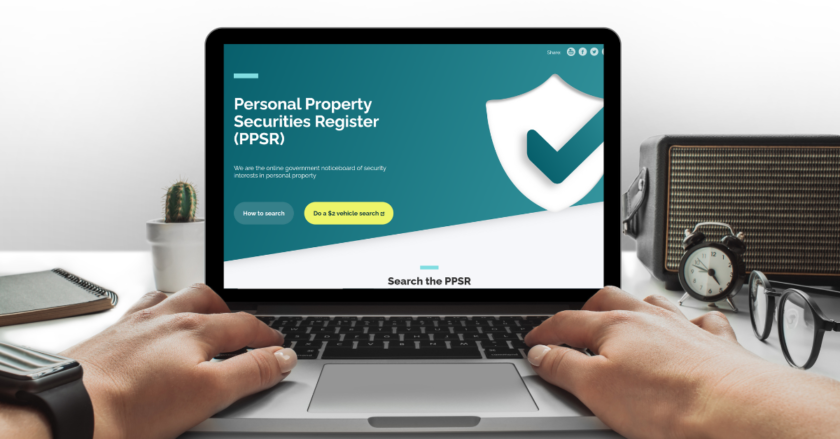Do you hire out plant and equipment? Do you sell stock on consignment? If so, you should know the importance of the Personal Property Securities Register (PPS Register).
Although the Personal Property Security Act and the PPS Register have been in place since 2014, it is still quite complex. Therefore, our Morrows advisors have prepared the following article to share some knowledge of the PPS Register and help you take the necessary steps to ensure your business’s interests are properly registered and protected.
The register is publicly accessible and updated in real-time.
It allows interested parties to record where they have a security interest in assets while those assets are not in their possession, so long as the the asset is ‘personal property’.
What is personal property?
Personal property is widely defined and includes the following:
- Plant, equipment, motor vehicles
- Debtors, stock, inventory, raw materials
- Personal loans to business entities to fund working capital
- Crops, livestock
- Intellectual property, trademarks
- Licences (eg. fishing, business, etc)
What is a security interest?
A ‘security interest’ is an interest in personal property (other than land) that secures payment of a debt or obligation. Examples include the following:
- Fixed and floating charges
- Retention of title (stock and goods)
- Mortgages of assets/chattels/shares/liens
- Hire purchase agreements
- Certain leases
The PPS Act affects you in several ways, for example, if the following applies:
- If your business lends money, rents out or lends equipment to your clients or customers, or sells goods on credit, you may have a ‘security interest’ over your customer’s assets which you can register on the PPS Register.
- This registration protects your interest in those assets against other people claiming an interest in them, for example, liquidators. A system of priority of security interests however applies.
- If your business borrows money, hires equipment or buys goods on credit, the lender or hirer may have a ‘security interest’ over some of your assets, which it can register on the PPS Register. This lets other people dealing with your business know that the lender, hirer or seller has an interest in some of the assets in your possession and may restrict your capacity to deal with these assets.
Registration is vital.
If you are entitled to a security interest over an asset, you will need to register that interest. Registrants need to provide information about the secured party, the entity who is or has granted the security interest and the collateral that is or would be the subject of the security interest. In addition, the registration will need to describe the property (asset) so that it can be readily identified by any other party who searches the PPS Register.
What happens if you don’t register on the PPS Register?
If you do not register your security interest on the PPS Register and someone who has possession of your security interest assets defaults on a loan, or becomes insolvent, you may lose any claim or interest you had to those assets. You may lose such property or interest to the bank or other lender or to creditors of an insolvent or bankrupt person. You will have no rights to get it back and are unlikely to be compensated or be paid for your interest.
There are time considerations and limitations together with costs associated with registering interests in assets, so you need to weigh the risks of losing your interest or security against the time and costs involved with registering.
Do PPSR registrations lapse?
Yes, they certainly do. Most registrations on the PPS Register are valid for seven years. Once a registration lapses due to non-renewal, it’s gone forever. A new replacement registration carries risk and is extra effort. So please ensure you don’t risk missing out on this renewal window!
Renewing sounds simple when dealing with only a few registrations, but multiply this by many with varying expiry dates, different selections of PMSI, inventory, transitional and so on, and this exercise becomes increasingly complex. Plus, some entities may no longer be active or have changed their ABN, ACN or name in the last seven years.
As we now head into the 10-year anniversary of PPS Register, it would be prudent to check that your registrations are still valid.
What should you do and how can Morrows help?
Here are the steps we recommend you follow to protect your assets;
- Check the validity of your existing PPSR registrations.
- Renew/extend, amend if you need to update any details or re-register any lapsed registrations.
- Review your trading activities to determine whether or not you need to register a security interest over the personal property of clients or customers, particularly if your business relates to the sale of goods on consignment, lease or hiring out goods. Reach out to Morrows Legal Solutions, who can assist with drawing out a lease agreement and registering the leased assets on the PPS Register.
- Make amendments to any trading documents to enable you to register a security interest over such personal property. Reach out to Morrows Legal Solutions, who can assist with making any amendments to trading documents.
- Review your inter-entity loans to determine whether you need to register a security interest over the loan. Morrows Legal Solutions can assist with preparing loan and mortgage agreements along with registering with the PPS Register.
If you require assistance determining your exposure or understanding of the registration or renewal process, please reach out to your Morrows Tax and Business advisor.





